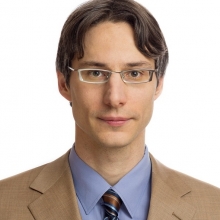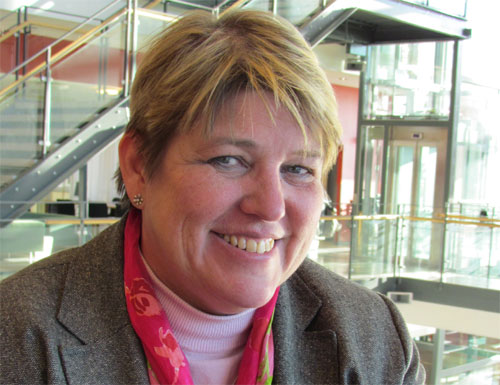SAM 2020 Keynote Speakers
Keynote 1 - Dániel Varró (Professor at McGill University)
The Automated Model Generation Challenge for the Assurance of Cyber-Physical Systems
Abstract: Many validation and benchmarking scenarios in engineering of cyber-physical systems depend on the systematic generation of domain-specific graph models. For instance, tool qualification necessitated by safety standards would require a large set of consistent (well-formed or malformed) instance models specific to a domain. System testing of autonomous vehicles frequently relies upon the automated synthesis of realistic test contexts. My talk will focus on the model generation challenge aiming to derive domain-specific models for the assurance of cyber-physical systems which models are simultaneously consistent, realistic, diverse and scalable. During the talk, I provide an overview of the state-of-the-art of automated model generation, and then present recent research results in developing a consistent and diverse graph generator with completeness and optimality guarantees.
 Biography
Biography
Dániel Varró is a full professor of software engineering at McGill University and at Budapest University of Technology and Economics. He was a research chair of the MTA Lendület Cyber-Physical Systems Research Group. He is a co-author of more than 160 scientific papers which received seven Distinguished Paper Awards, and three Most Influential Paper Awards. He serves on the editorial board of the Software and Systems Modeling and Journal of Object Technology journals. He was a program committee co-chair of FASE 2013, ICMT 2014 and SLE 2016 conferences. He is a co-founder of the VIATRA model query and transformation framework, and IncQuery Labs, a technology-intensive Hungarian company.
Keynote 2 - Sigrid Eldh (Senior Specialist Software Test Technology Researcher at Ericsson AB)
...everything is a model!
Abstract: It is how we think, how we transform reality into a communication pattern -a “handshake” in a protocol – a common language! It is how we make decisions– by “learning” using probabilities of guesses gives successes from a model. The future has already arrived. From deep learning models to autonomous systems. Despite advances and new findings, the reality in industries still seems to be stuck. It is about convincing people, a lot of people – to form strong communities. These communities can have the strength to adapt, improve, secure, speed up – and make our tools, languages, methods and systems work faster and better. There are still no standards for AI models – Data is everywhere – and can be corrupt, transformed and lost. IoT combines all aspects – and we must be much better in cooperation for common success. Most software systems created are filled with bugs and despite this, still fulfills a purpose. Going autonomous creates new hard requirements on all aspects of analysis and creation of software and systems development, testing, validation and modelling. It is easy to forget all the non-functional requirement, or simply define your constraints into your model. It is the analysis – still in our mind – and slowly transforming into the computers reinforcement that currently is the key to the “right” model. Change is the only one thing that is for certain. In this talk I will highlight some experiences gained, impacting the quality of the futures systems from a more industrial perspective. What we gain, what we miss and what my “model” of success can look like in information overflow society.
 Biography:
Biography:
Sigrid Eldh is a Researcher and Senior Specialist at Ericsson AB, Stockholm, Sweden, where she leads the research in Software Test Technology, Quality and Debugging. Eldh is an adjunct professor at Carleton University, in Ottawa, Canada and a senior lecturer at Mälardalen University, where she also received her PhD On Test Design. She got her MSc from Uppsala University. She also earned a diploma in Gestalt Therapy and Organizational Leadership, from GIS in Denmark. She has over 35 years of experience from many different positions in the software industry across varies domains, as well as from government agencies. Her research focus is based in technologies to achieve efficient quality systems mainly through automation towards self-healing and autonomous systems. She has written a book on Operating Systems (1987), is the author of over 50 referred publications and holds two patents. She is now leading the TESTOMAT Project, a 34 partner Eureka ITEA 3 Industry lead research collaboration, with the focus on increasing automation and find a balance between agility and quality in Industry.
